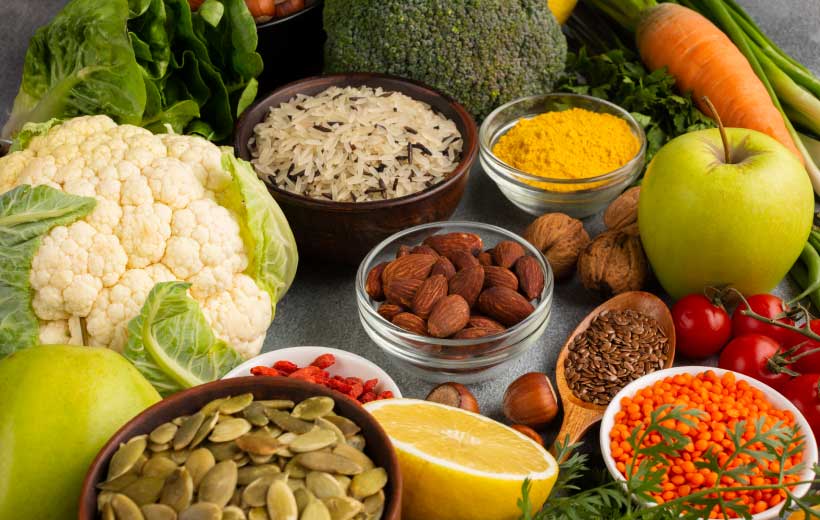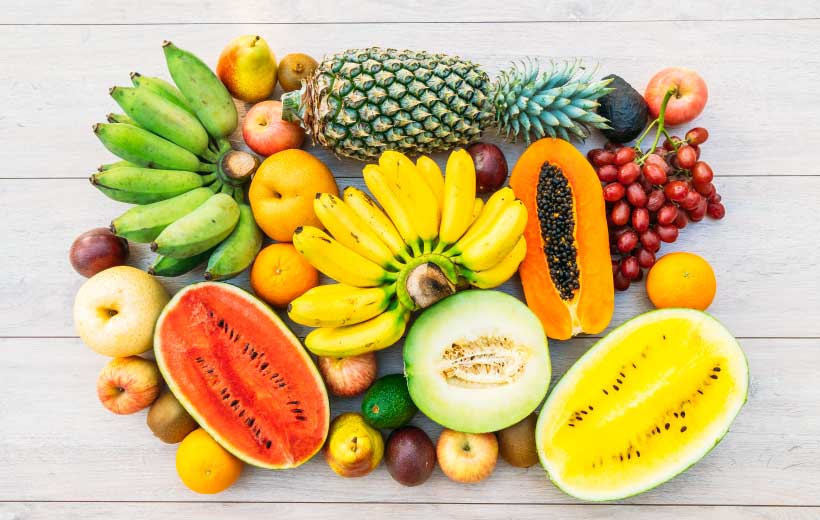Watermelon, cucumber, and strawberry contain a lot of water; Carrots, bananas, and blueberries are low in carbohydrates and are beneficial for people who often have stomach pain, bloating, and other digestive problems.
People with stomach pain, irritable bowel syndrome, and some digestive problems should choose foods that are easy to digest. This makes the symptoms less severe, contributing to the improvement of the condition. Here are some ways to choose vegetables that are easy to digest, reduce bloating, abdominal pain…
Low-carbohydrate foods
A low-FODMAP diet helps improve symptoms for people with irritable bowel syndrome (IBS). An April 2016 study published in the European Journal of Nutrition found that low-FODMAP foods improved the quality of life for patients with this syndrome. Participants had fewer or less severe symptoms such as abdominal pain, bloating, gas, constipation, diarrhea, etc.
FODMAPs are short-chain carbohydrates (carbs) that can lead to gas, bloating, and other symptoms. Many fruits, vegetables, and dairy products are in the high FODMAP group. Some low-FODMAP varieties include potatoes, carrots, blueberries, etc.
The fruit has a lot of water
Water is good for the digestive system, making it easier to break down food and soften stools to prevent constipation. Among the fruits and vegetables, watermelon is the one with the most water. According to the United States Department of Agriculture (USDA), 100 g of watermelon contains 91.5 g of water or about 92%. It’s also packed with nutrients like vitamins A and C. A fruit salad with lots of watermelons makes for an easy-to-digest breakfast or snack. Vegetables with high water content such as celery, cucumber, cantaloupe, strawberries, pineapple, cabbage…

Watermelon has a lot of water, making it easy to digest and relieve constipation.
Low-fiber vegetables
Depending on your digestive symptoms, you can increase or decrease your fiber intake. Fiber helps food move through the digestive system, but too much can also cause problems. Not getting enough fiber can cause symptoms related to constipation. In this case, foods rich in fiber such as pears, mangoes, berries, and potatoes… can alleviate the discomfort.
Excess fiber is not as common as lack of fiber, but it still causes conditions such as bloating, gas, and diarrhea… Those experiencing digestive symptoms related to consuming too much fiber should try switching. to low-fiber varieties such as carrots, watermelon, plums, and beets…
Well cooked vegetables
Raw vegetables have more nutrients and fiber than cooked vegetables. The higher fiber content in raw vegetables can upset the digestive system and cause other symptoms, especially for people with an upset stomach. When foods are harder to chew, they can pass through the digestive tract without being chewed properly and broken down properly. Thoroughly cooked vegetables can relieve indigestion because they are easier to chew and have less fiber.
If you are worried about nutrients being lost when cooking, you can steam it. Adding broccoli, cauliflower, carrots, green beans, corn, and steamed zucchini… to your diet will be good for digestion.
Fermented vegetables rich in probiotics
Fermented foods are easy to digest, especially for people with stomach pain. Sauerkraut, kimchi, and pickles… contain many beneficial bacteria, increasing the diversity of intestinal bacteria. According to a 2014 study by the Indian Institute of Technology Madras, probiotic-rich fermented foods improve gastrointestinal function and reduce the risk of colon cancer. Research by the University of Nebraska-Lincoln (USA) in 2018 also shows that these foods can improve the overall digestive process, bringing many benefits such as weight control, and reducing the risk of disease.
Pureed vegetables
For people with GERD or difficulty swallowing, smoothies or soups make digestion easier. People with weak stomachs can puree food to reduce stress on the digestive system. However, pureeing foods can break down the fiber. If people are sensitive to consuming foods rich in fiber, they should be careful.
In addition to choosing foods that are easier to digest, people with an upset stomach should limit foods that can irritate them. Many people with food allergies and sensitivities to milk, gluten, and soy… should also limit these foods. If severe digestive symptoms persist, you may want to try an elimination diet or talk to a dietitian or doctor.
Follow the website ongreenbeauty.com to get more health, nutrition, and beauty information to protect the health of yourself and your loved ones in your family.




